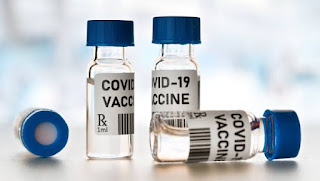How to lower blood pressure without taking any drug
However, if you don't want to go the way of drugs, here is how you can lower your blood pressure and get healthy naturally.
If you've been diagnosed with high blood pressure or are feeling like nearly developing it, you might be anxious about taking medication to lower your numbers.
You have now to know that lifestyle plays a vital role in the treatment of high blood pressure. If you successfully get control on your blood pressure through a healthy lifestyle, you can avoid, delay or reduce the need for medication.
Here are 7 lifestyle changes you can adopt to lower your blood pressure for good.
1. Lose weight and get lesser inches
Blood pressure tends to increase with weight increase and being overweight also can lead to breathing challenges which can raise your blood pressure even further.
Weight loss is the best lifestyle change in the attempt to control blood pressure. Losing even a small amount of weight if you're overweight or obese can help lower your blood pressure significantly.
Also,being overweight, carrying too much weight around your waist can put you at greater risk of high blood pressure so you should shun this if you want to have those numbers down, and gain some inches.
2. Try to exercise often
Regular exercise, a minimum of 150 minutes a week or 30 minutes per day can reduce your blood pressure significantly. In order to see results, you have to be consistent because when you stop exercising, your blood pressure can rise again.
If you have increased blood pressure, exercise can allow you avoid developing hypertension. If you already have hypertension, regular physical activity can reduce your blood pressure to a safer level.
Some examples of aerobic exercise you can try to lower your blood pressure include walking, jogging, cycling, swimming or dancing.
3. Eat healthy
Eating a diet that is rich in whole grains, fruits, vegetables and low-fat dairy products and skinny on saturated fat and cholesterol can reduce your blood pressure.
Here are some tips that can ease you into eating a healthy diet:
keep a food diary:writing down everything you eat, even for just a week, can help expose your true eating habits. Monitor what you eat, how much, when and why.
Consider boosting potassium:Potassium can limit the effects of sodium on blood pressure. The best source of potassium is food, like fruits and vegetables, rather than supplements. Talk to your doctor about the potassium level that is best for you.
Be a smart shopper:Read food labels when you shop and stick to your healthy-eating plan eve when you're dining out.
4. Reduce your salt intake:Even a small reduction in the sodium in your diet can improve your heart health and lower blood pressure.
To effectively reduce your sodium intake:
Read food labels: If possible, choose low-sodium options of the foods and beverages you regularly buy.
Eat fewer processed food: Only a small amount of sodium is provided naturally in foods. Most sodium is added by processed foods.
Don't add salt: Just 1 teaspoonful of salt has 2,300 mg of sodium. Make use of herbs or spices to add flavor to your food.
5. Drink less alcohol:Drinking alcohol only moderation can potentially reduce your blood pressure. But the protective layer is lost if alcohol is taken in excess.
Drinking more than moderate amounts of alcohol can actually raise blood pressure by many points and it can also limit the efficacy of blood pressure medications.
6. Don't smoke:Each cigarette you smoke increases your blood pressure for many minutes after you've finished. Stopping smoking allows your blood pressure return to normal. And this can reduce considerably your risk of heart disease and improve your health in general.
7. Cut out caffeine:Caffeine can raise blood pressure in people who rarely drink it however, for regular coffee drinkers ,they may experience little or no effect on their blood pressure
To see if caffeine raises your blood pressure, check your pressure within 30 minutes of drinking a caffeinated drink. If it does, it may be time to stay away from caffeine for good.













Comments
Post a Comment